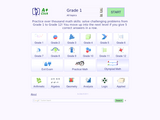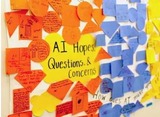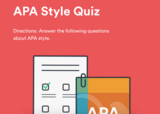
ARALING PANLIPUNAN 8 ACTIVITY SHEET
- Subject:
- Social Science
- Material Type:
- Activity/Lab
- Assessment
- Author:
- Benedicta Santos
- Date Added:
- 01/08/2023

ARALING PANLIPUNAN 8 ACTIVITY SHEET

A+ Click is an interactive collection of more than 3700 math problems and answers for K-1 K-12 school program. It defines the personal level of math knowledge. You move up into the next level if you give 5 correct answers in a row. Practice makes perfect.

Guiding Question: In what ways do “single stories” impact our own identities, how we view others, and the choices we make?

Affective assessment plays a crucial role in capturing and understanding individuals' emotions, attitudes, values, and social-emotional skills. It supports the development of a learner-centered approach and enables educators and practitioners to tailor interventions, provide targeted support, and create environments that foster emotional well-being and positive learning experiences.

These tools are designed to assess various dimensions of affect, including positive and negative emotions, emotional intensity, and emotional stability.

Affective evaluation is a type of student assessment that focuses on traits such as motivation, attitude toward learning, and emotions of self-efficacy.

Affective assessment is a method used to evaluate individuals' emotional, social, and attitudinal aspects. It involves measuring and analyzing subjective experiences, attitudes, and feelings, providing insights into one's affective states and their impact on learning, behavior, and well-being.

AFFECTIVE ASSESSMENT DESIGN PLAN

This presents a work about affective authentic-based assessment, a methodology that focuses on evaluating learners' affective and authentic dimensions within educational contexts. The assessment approach combines authentic tasks and self-report measures to capture learners' emotions, attitudes, values, and beliefs

Affective-based authentic assessment is an approach to evaluating student learning that focuses on assessing the affective domain, which includes attitudes, beliefs, values, emotions, and motivation. It aims to measure and understand the emotional and behavioral aspects of student learning, rather than solely focusing on cognitive skills and knowledge acquisition

Affective assessment is a valuable approach that focuses on evaluating and measuring the emotional, social, and attitudinal aspects of learning and development. It goes beyond traditional assessments that primarily assess cognitive abilities and knowledge. Affective assessment recognizes the importance of emotions, attitudes, and social skills in shaping the overall learning experience and outcomes.

This is an affective based assessment that is all about modeling good behavior.

An assessment plan used to know the role of communication in student's interaction.

An alternative assessment design plan use to measure the impact of communication in student's interaction

Affective Assessment is an assessment based on the student's attitudes, interest and values. Affective Domain .The Affective Taxonomy, which describes objectives that reflects underlying emotions, feelings, or values rather than cognitive or thought complexity

AFFECTIVE-BASED AUTHENTIC ASSESSMENT -The affective domain includes factors such as student motivation, attitudes, perceptions and values. Teachers can increase their effectiveness by considering the affective domain in planning courses, delivering lectures and activities, and assessing student learning

According to Krathwohl, Bloom, and Masia (1973), the affective domain refers to how we interact with objects emotionally, such as feelings, values, admiration, excitement, motivations, and attitudes. Starting with the most basic behavior, the five main categories are listed. Assessing the affective domain is important because it provides insights into individual emotional and social development as well as their motivation, attitudes, and values. It helps educators in understanding how students feel about a subject, their degree of interest, and their readiness to interact and take part in learning activities.

This resource includes a set of activities, teacher guides, assessments, materials, and more to assist educators in teaching about the ethics of artificial intelligence. These activities were developed at the MIT Media Lab to meet a growing need for children to understand artificial intelligence, its impact on society, and how they might shape the future of AI.
This curriculum was designed and tested for middle school students (approximately grades 5th-8th). Most activities are unplugged and only require the materials included in this document, although unplugged modifications are suggested for the activities which require computer access.

This resource includes traditional writing prompts as well as prompts and assignments that utilize AI-generated text. It covers the fields of Creative Writing, Composition, and Business and Technical Writing.

This quiz tests students' knowledge of key aspects of APA style (7th edition).